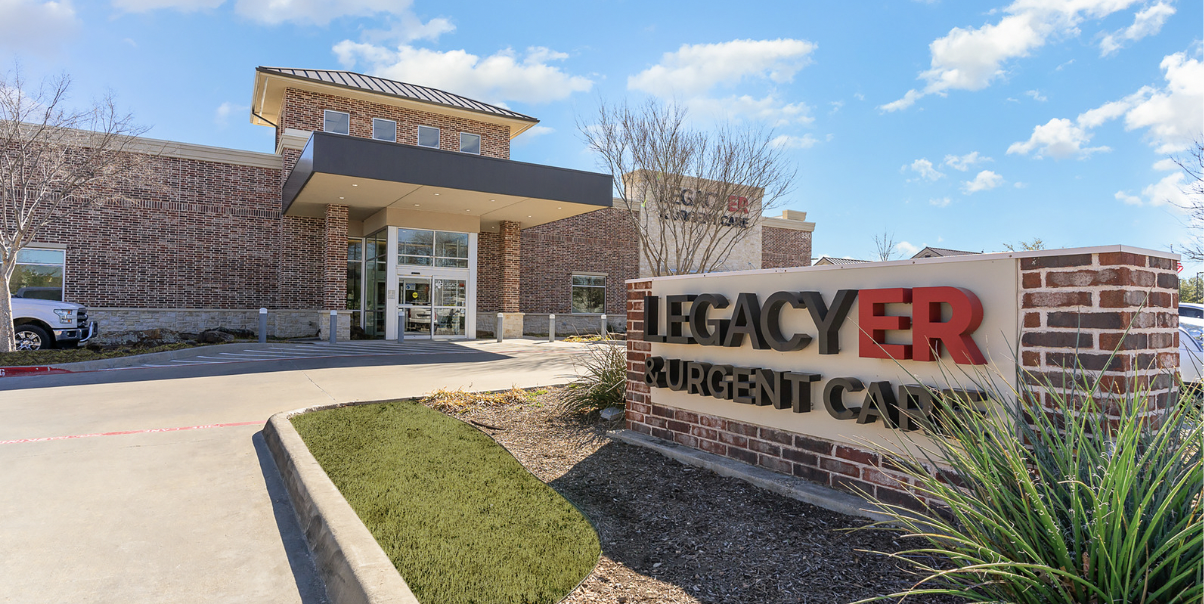Migraine Types, Symptoms, and Treatment
- Category: Conditions, Symptoms, Treatment
- Posted On:
- Written By: Jay Woody, MD

It’s impossible to understand just how painful a migraine is unless you’ve experienced it. Then, there is no question that this isn’t merely a headache. It’s a debilitating condition that causes intense symptoms that can last for days. Migraine treatments are available to alleviate symptoms and even reduce the frequency of attacks.
Get the details on the types of migraines and symptoms. Also, find out how to get quick migraine relief at Legacy ER & Urgent Care.
Common Types of Migraines
Migraines are categorized into different types based on how they present and the symptoms. There are numerous types of migraines, but some are more prevalent than others.
- Migraine with Aura – Some people experience an aura before the migraine headache begins. Auras usually present as visual disturbances, but some people have verbal problems or sensory or motor disturbances. Researchers have found an association between migraine with aura and an increased risk of heart disease and stroke, so it’s essential to monitor this condition.
- Migraine without Aura – An estimated 70-75% of people don’t have auras during migraine episodes. Without an aura, the migraine headache can feel like it comes on suddenly.
- Chronic Migraine – An estimated 3-5% of the U.S. population suffers from chronic migraine. Chronic migraine is diagnosed in people who have migraine headaches for at least 15 days per month. Additionally, this must occur for more than three months to receive a chronic migraine diagnosis.

Migraine Symptoms
If you have migraine with an aura, you’ll experience symptoms for up to an hour before the headache starts. The symptoms may include numbness and tingling, visual changes, loss of sight, weakness, and changes in speech.
Once the migraine headache begins, people experience many of the same symptoms, such as:
- Appetite loss
- Nausea or vomiting
- Pronounced sensitivity to smells, noise, and light
- Scalp tenderness
- Severe pounding or throbbing pain on one or both sides of the head
- Trouble sleeping
The pain usually subsides within four hours, but migraine headaches can last for up to three days. Then, many people experience prodrome symptoms, such as difficulty concentrating, fatigue and, irritability, or depression. These symptoms resolve within 24-48 hours.
Migraine Treatments at the ER and Urgent Care
With intense pain, nausea, and other debilitating symptoms, riding out a migraine attack isn’t always an option. These episodes can last for up to three days, and you’ll be miserable without treatment. You can go to urgent care or the emergency room for immediate symptom relief and follow up with your primary care provider or neurologist for long-term migraine management.
The doctor will go over your symptoms to make sure you have a migraine instead of a life-threatening condition such as an aneurysm. Then, you might receive a “migraine cocktail” of medications at the ER or urgent care. These medicines help with pain, nausea, and other symptoms. Since it’s hard to remain hydrated during migraine attacks, you also might need IV fluids to replenish your body while you recover.
Many people leave the facility shortly after receiving medication. However, if you have severe symptoms, you might need several doses of the medicine to receive symptom relief.
Emergency Migraine Symptoms
Migraine attacks usually aren’t medical emergencies. However, some symptoms indicate that you might be having a medical emergency. Monitor your symptoms and seek emergency care if you experience the following:
- Confusion
- Headache that lasts longer than 72 hours
- Neck stiffness
- Numbness or weakness
- Symptoms that don’t subside after taking prescribed medication
- The worst headache ever or intense pain that comes on at once
- Trouble speaking once the headache starts
- Vision changes during the headache

DFW-Area Migraine Treatments
Legacy ER & Urgent Care is here to meet your medical care needs by providing affordable pricing and quality care. As part of Intuitive Health’s innovative hybrid model ER and urgent care system, patients are only billed for the level of care they receive from professional and highly trained medical staff. With six facilities located in the Dallas-Fort Worth metroplex, emergent and non-emergent care are accessible and transparent, focusing on superb customer service.
Legacy ER & Urgent Care has six convenient locations in the DFW area:
- Allen – Legacy ER & Urgent Care is located at 1310 W. Exchange Pkwy Allen, TX 75013, and may be reached at 972-526-5819.
- Coppell – Legacy ER & Urgent Care is located at 330 S Denton Tap Rd Coppell, TX 75019 and may be reached at 469-702-9917.
- Frisco East – Legacy ER & Urgent Care is located at 16151 Eldorado Pkwy Frisco, TX 75035 and may be reached at 972-526-7009.
- Frisco West – Legacy ER & Urgent Care is located at 9205 Legacy Dr. Frisco, TX 75033, and may be reached at 972-526-7020.
- McKinney – Legacy ER & Urgent Care is located at 2810 Hardin Blvd McKinney, TX 75072 and may be reached at 972-573-6688.
- North Richland Hills – Legacy ER & Urgent Care is located at 8950 N. Tarrant Pkwy North Richland Hills, TX 76182, and may be reached at 817-663-1247.
